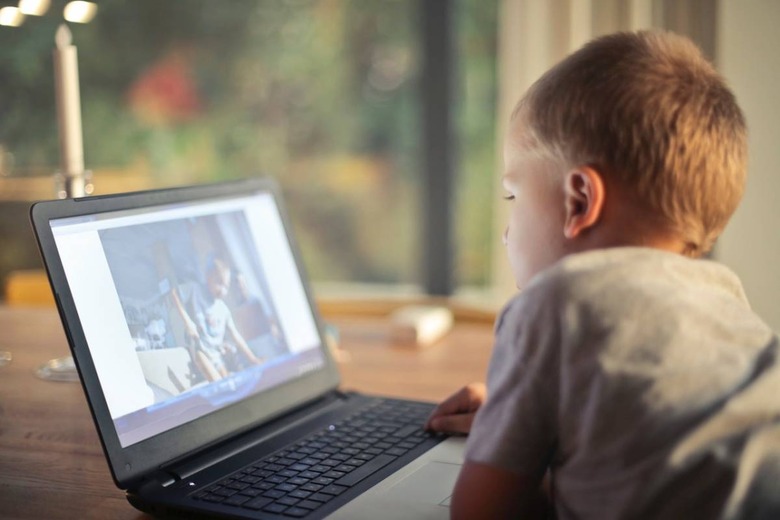The New WHO Screen Time For Kids Limits Are Super-Strict
Children under one year of age shouldn't have any screen time, the World Health Organization has decided, part of a wide-ranging set of guidelines for raising heathy kids that could well prove controversial. Although many parents have discovered that sitting an infant in front of a TV or tablet can prove a capable distraction, the potential health risks may be considerable.
The new guidelines by the WHO focus on physical activity, sedentary behavior, and sleep for children under five years of age. Developed by a team of experts for the Organization, they put renewed attention on how easier distractions and unpredictable schedules can have lasting impact on how a child grows up.
Indeed, getting the trifecta of sleep, activity, and avoiding spending too much time slumped in front of a display could well be as important as vaccines. "Improving physical activity, reducing sedentary time and ensuring quality sleep in young children will improve their physical, mental health and wellbeing," Dr Fiona Bull, program manager for surveillance and population-based prevention of noncommunicable diseases, at the WHO says, "and help prevent childhood obesity and associated diseases later in life."
For infants under twelve months, the guidance is straightforward: no screen time whatsoever. Indeed, children in that age bracket shouldn't be restrained for more than an hour at a time, and while sedentary they ought to be engaged in reading and storytelling with a caregiver, the WHO says. More physical play is better, in addition to as much as 17 hours "of good quality sleep."

Even at 1-2 years, though, screen time remains anathema. "For 1-year-olds, sedentary screen time (such as watching TV or videos, playing computer games) is not recommended," the WHO cautions. "For those aged 2 years, sedentary screen time should be no more than 1 hour; less is better. "
1-2 year old kids should be spending at least three hours each day engaged in physical activities, too. Sleep should be between 11-14 hours, but equally important are "regular sleep and wake-up times" to build consistency.
As for 3-4 years olds, even then screen time should be seriously limited. No more than an hour a day is the official guideline, while physical activity should be more vigorous still. Again, the WHO advises the importance of regularity when it comes to things like bedtime.
While the convenience of putting a kid in front of the TV or an iPad to occupy them can't be denied, the WHO warns that there are clear health risks to that. "Failure to meet current physical activity recommendations is responsible for more than 5 million deaths globally each year across all age groups," the Organization points out. Getting healthy routines established early on in life can help address that, as well as "help prevent childhood obesity and associated diseases later in life" Dr Bull concludes.
